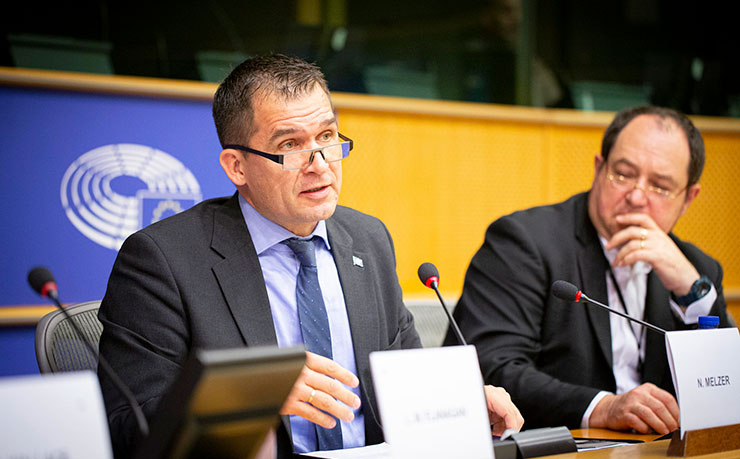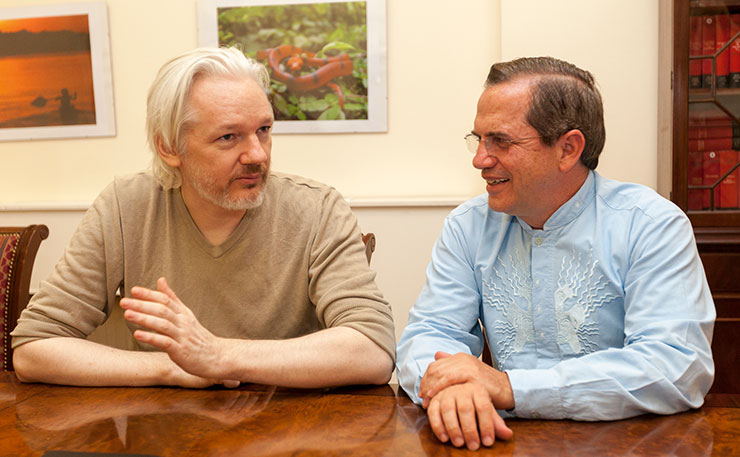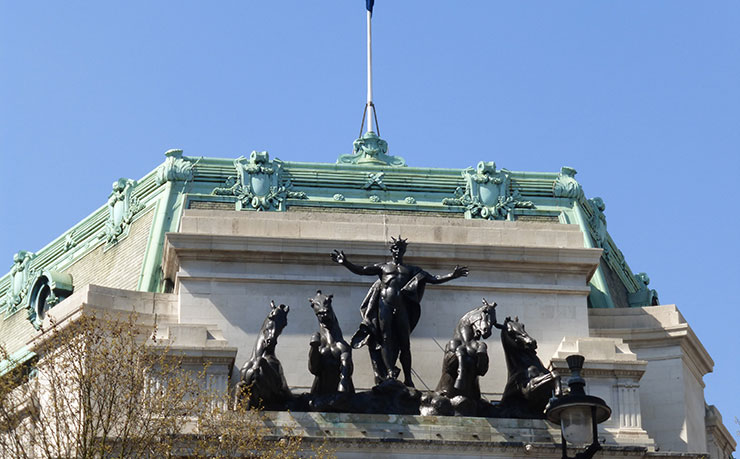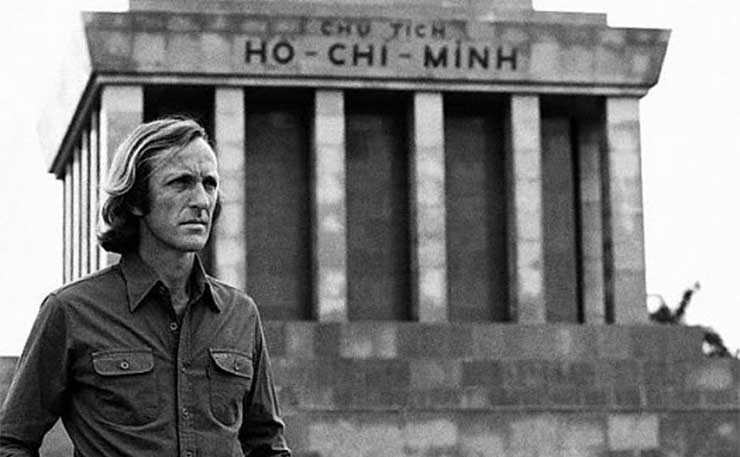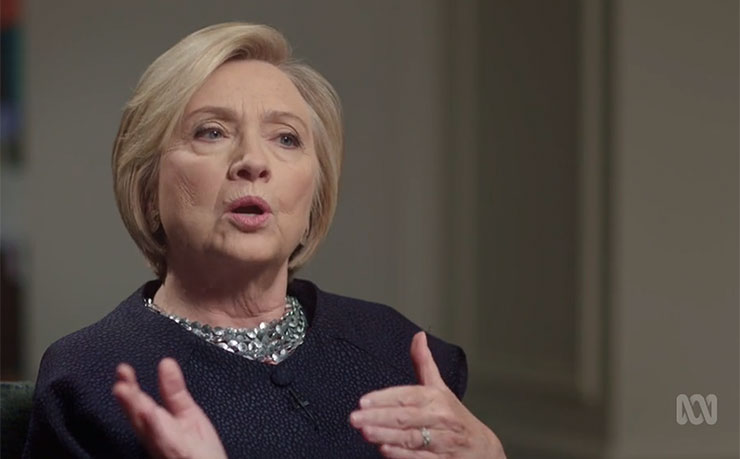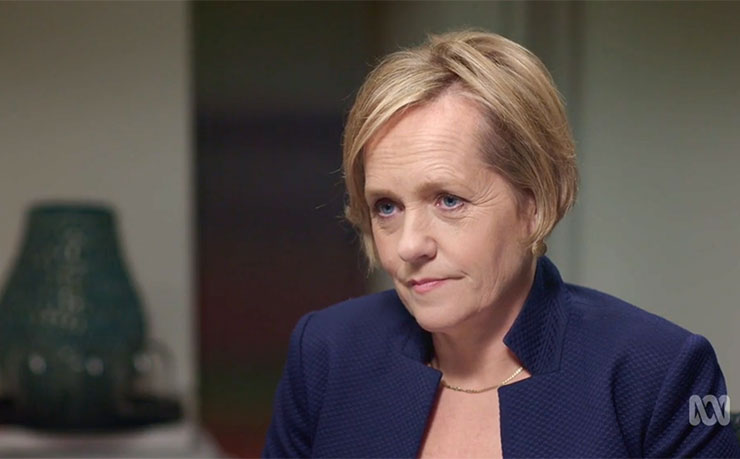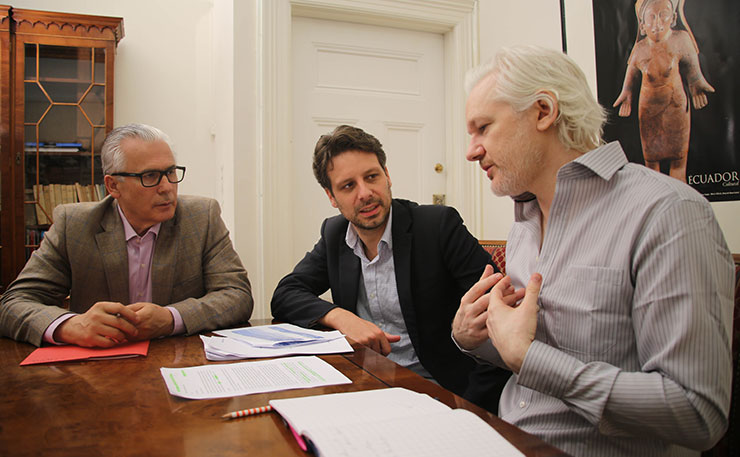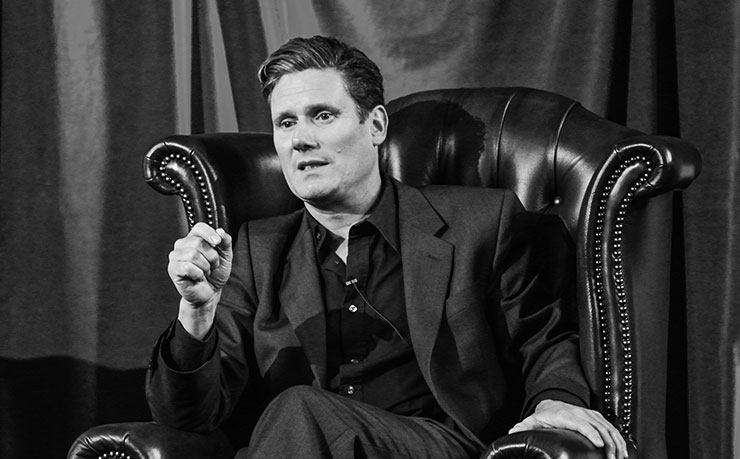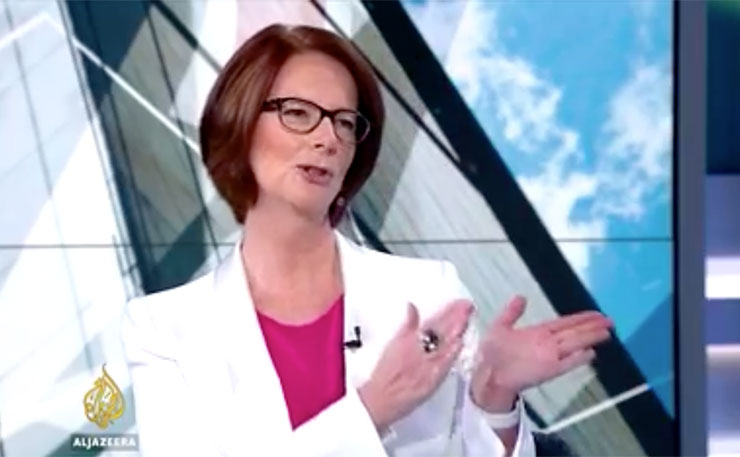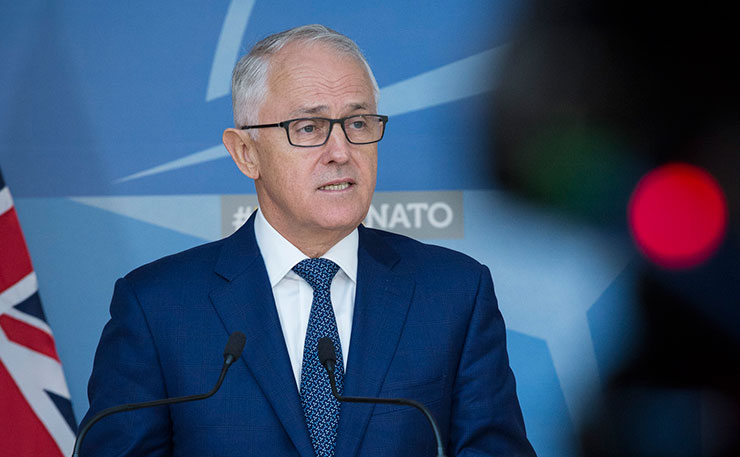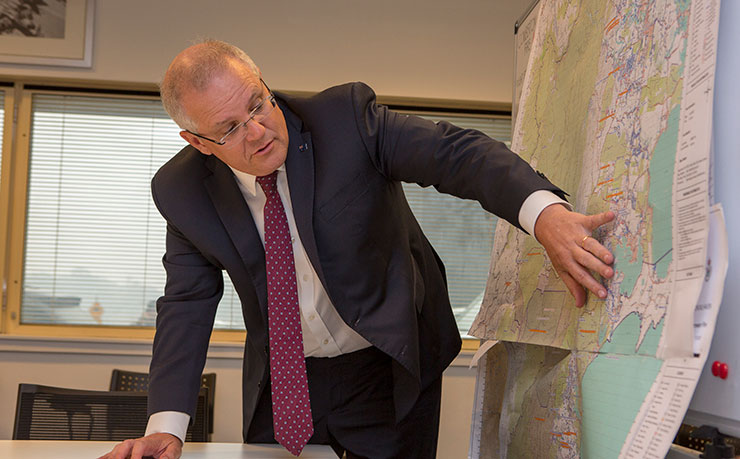
Back in 2017, before WikiLeaks co-founder Julian Assange was silenced by Twitter, he used the platform to highlight an immutable truth:
‘The overwhelming majority of information is classified to protect political security not national security.’
Power hates being exposed. It hates having its inner machinations, its selfish priorities and ugly operations opened up to public scrutiny.
The omission of inconvenient facts, and the silencing of inadmissible viewpoints, are core features of the so-called ‘mainstream’ news media. Thus, it should be obvious by now why we always put ‘mainstream’ in quotation marks. Because, as increasing numbers of the public surely now recognise, the major news media are not impartial, or fair, or balanced. Nor do they truly represent and reflect the concerns and priorities of the vast majority of the population. Instead, the major newspapers and broadcasters represent, defend and project the interests of powerful state and corporate elites. The state-corporate media will not, and cannot, undertake consistent and reliable public scrutiny of these elites. That would make no sense since the mass media is the propaganda operation of state-corporate power.
Since we began Media Lens twenty years ago in 2001, we have amassed over 5,000 pages of media alerts detailing numerous examples of dangerous, power-friendly omissions, distortions and imbalances in UK state-corporate media. Rather than go for easy and obvious targets like the Sun, Express and Mail, we have focused on those media outlets the public is supposed to regard as the most fair, balanced, probing and challenging of governments and Big Business. ‘Thus far and no further’, as Noam Chomsky has described the most open or most liberal end of the narrow spectrum of establishment media.
BBC News deserves particular scrutiny, not least because it regularly declares itself ‘the world’s most trusted international news broadcaster’. That is not much of an accolade given that public trust in the media is crumbling; particularly in a country which has some of the worst ‘news’ media anywhere on the planet. The UK has an overwhelmingly right-wing and establishment press dominated by rich owners, and edited by compliant editors with the required ideologically-aligned views. As for the Guardian, which has always been a ‘liberal’ gatekeeper on behalf of power, investigative journalists Matt Kennard and Mark Curtis reported in 2019 that the paper has been:
‘successfully targeted by security agencies to neutralise its adversarial reporting of the “security state”, according to newly released documents and evidence from former and current Guardian journalists.’
Moreover, other than a recent belated and mealy-mouthed defence, for many years the Guardian essentially abandoned and abused Julian Assange, along with the rest of the ‘mainstream’ media, after exploiting him and WikiLeaks.
Couple all that with the fact that BBC News regularly follows the skewed, power-serving agenda set by UK press coverage, and it is no surprise that overall British public trust in the media is so low. As we noted last year, the extensive annual Eurobarometer survey across 33 countries revealed that the UK public’s trust in the press is rock bottom. Indeed, 2020 was the ninth year out of the past ten that the UK had come last.
BBC Silence Over Israel As An Apartheid State
One of the most egregious recent omissions by BBC News was last week’s groundbreaking report by leading Israeli human rights group B’Tselem naming Israel as ‘an apartheid state’ and ‘a regime of Jewish supremacy’:
‘In the entire area between the Mediterranean Sea and the Jordan River, the Israeli regime implements laws, practices and state violence designed to cement the supremacy of one group – Jews – over another – Palestinians.’
Apartheid in the Palestinian Territories has long been recognised. For example, in 2004, a prominent South African professor of international law, John Dugard, then UN special rapporteur on human rights in the Palestinian territories, wrote that there is ‘an apartheid regime’ in the territories ‘worse than the one that existed in South Africa.’
Noam Chomsky concurred:
‘In the Occupied Territories, what Israel is doing is much worse than apartheid. To call it apartheid is a gift to Israel, at least if by “apartheid” you mean South African-style apartheid.
‘What is happening in the Occupied Territories is much worse. There is a crucial difference. The South African Nationalists needed the black population. That was their workforce…
‘The Israeli relationship to the Palestinians in the Occupied Territories is totally different. They just do not want them. They want them out, or at least in prison.’
All this was damning enough. But the publication of the new B’Tselem report was the first time that Israeli human rights and legal experts had publicly stated that apartheid exists not just in the Occupied Territories, but throughout the whole region that Israel claims for itself.
As the Israel-based British journalist Jonathan Cook observed:
‘By calling Israel an apartheid state and a “regime of Jewish supremacy”, B’Tselem has given the lie to the Israel lobby’s claim – bolstered by a new definition promoted by the International Holocaust Remembrance Alliance – that it is antisemitic to suggest Israel is a “racist endeavour”.
‘B’Tselem, a veteran Israeli Jewish organisation with deep expertise in human rights and international law, has now explicitly declared that Israel is a racist state. Israel’s apologists will now face the much harder task of showing that B’Tselem is antisemitic, along with the Palestinian solidarity activists who cite its work.’
As far as we are aware, there was no mention of the report on any of the flagship BBC News at 6 or 10 television programmes. Nor was there anything to be found on the BBC News website. Presumably, the BBC deemed it unworthy of the public’s attention. We challenged BBC foreign editor Andrew Roy, BBC world affairs editor John Simpson, BBC chief international correspondent Lyse Doucet and BBC digital news editor Stuart Millar for a response. Not one of them replied. It is perhaps significant that Millar moved to the BBC from the Guardian where, as deputy editor of Guardian US, he had scoffed at Julian Assange:
‘I like to think that #Assange chose the Ecuadorean embassy because it’s so convenient for Harrods’
This is the archetypal sneering ‘mainstream’ journalist’s view of anyone who seriously exposes the truth and challenges power.
As for B’Tselem’s landmark report detailing the reality of the Israeli state as an apartheid regime, it is possible that there were sporadic brief mentions in some outlying parts of the BBC. Longtime readers will recall that the BBC infamously buried revelations by Scott Ritter, a former chief UN weapons inspector, that Iraq had been fundamentally disarmed of any weapons of mass destruction, at 3am on the BBC World Service.
In response to the B’Tselem report, John Pilger pointed out via Twitter:
‘Israel is top of the league for vaccinating its own people [against coronavirus]. The accolades say Israel is the “example”. False. Israel is denying the vaccine to Palestinians whose land and lives it controls. WHO has pleaded with Israel: to no avail. Apartheid in action.’
Glossing Over Brutal Imperialism
Here in the UK, the Tory government’s criminally incompetent response to the coronavirus pandemic has led to an appalling death toll – now the highest death rate of any country in the world – while ministers robotically repeat the mantra of ‘following the science’, with one U-turn after another. Meanwhile, many people are suffering tremendous hardship, losing their jobs or struggling to earn a living, or even unable to feed their children adequately.
As Phil Miller, a staff writer for the excellent investigative journalism website Declassified UK, noted:
‘The UK now has over 100,000 covid deaths. That’s a result of government failure on a grand scale. The lack of calls for Johnson and ministers to resign is extraordinary’
It is extraordinary. But, tragically, it is a natural consequence of how the state-corporate media represents and defends elite power, of which it is a key component. Any real dissent is smeared, swept to the margins or simply blanked. With the power of corporate media manifest in the demolition of Jeremy Corbyn’s prospects of becoming Prime Minister in 2019, it is entirely predictable that there is now no substantive political opposition to a destructive, elite-serving Tory government.
Sir Keir Starmer, Labour’s lame Blairite successor, is a stalwart establishment figure who, at best, would only ever paper over a few cracks in the edifice of neoliberal economics. This is the corporate- and finance-driven system that is crushing the vast majority of the world’s population, destroying the natural environment and species at an alarming rate, and driving us all towards the precipice of climate breakdown. As we have noted before, and as we will see again below, no world leader anywhere is doing anything remotely sufficient to address this disaster.
Starmer has actually called for the Labour party to emulate incoming US President Joe Biden’s ‘broad coalition’ to ‘see progressive values triumph over the forces of division and despair’. The stone-cold reality that Biden, set to be inaugurated today (20 January), represents huge financial interests and corporate power, and has an appalling record in supporting US imperialism and wars, appears to have escaped Starmer’s attention. But then, Starmer is also seemingly oblivious to the UK’s own imperial past and blood-soaked complicity in war crimes. How else could a Labour leader write:
‘We are at our best when the world knows we have the courage of our convictions and a clear moral purpose.’
Wiping away the blood of countless US/UK atrocities across the globe, he continued:
‘For the United States of America and for Britain, this is the time to return to the world stage. This is the time for us to lead.’
To gloss over Britain’s brutal past and present – to ignore the grievous crimes committed against Afghanistan, Iraq and Libya, to name a few – is an insult to the UK’s many victims. For a supposed ‘progressive’ to do so is surely absurd. It can only result from being blind to the propaganda system so cogently explained by Edward Herman and Noam Chomsky in ‘Manufacturing Consent’ (Vintage, 1988). In this system, we are immersed in a brainwashing environment of mass media in which even the more ‘reputable’ news outlets such as Associated Press regurgitate doctrinal statements such as:
‘For decades, the U.S. has been an advocate for democracy abroad, using diplomatic pressure and even direct military intervention in the name of spreading the principles of a pluralistic system with a free and fair vote for political leaders. These tactics have generated both allies and enemies, and this year’s presidential vote perhaps more than any other is testing the strength of the values it promotes around the world.’
A safe pair of hands like Sir Keir would never recognise, far less, criticise such assertions for the dangerous, ideological and ahistorical nonsense that they are. Instead, Starmer is locked into an elite-friendly mindset apparent whenever he proclaims his establishment credentials, as here via Twitter:
‘This is also an important moment for the world. It is a chance to reassert America’s place as a force for good on the world stage. A nation that will work with Britain and other allies to defeat this pandemic and fight climate change.’
The reply from Media Lens reader Ryan Moon was apt:
‘When, specifically, has the US (& UK) been a “force for good in the world”? Supporting Suharto & Pinochet maybe? In Yemen & Libya? In the Chagos Islands? Nicaragua might have a few choice words about that description, too. Grow a spine.’
Biologist and science writer Richard Dawkins, like so many other prominent members of the liberal commentariat, once again revealed his deep ignorance of history and world affairs:
‘With few exceptions like Putin & Farage, the entire world welcomes President Biden and Vice-President Harris. After four years of lies, venal hypocrisy and vicious hostility to decency and humane values, America has taken a major step towards making America great again.’
Historian Mark Curtis, co-founder of Declassified UK, responded:
‘The thing is, @RichardDawkins, while you’re right to welcome the demise of the contemptible Trump, as I do, the “lies, venal hypocrisy and vicious hostility to decency and humane values” are just routine features of every US presidency, especially in foreign policy.’
Meanwhile, it was no surprise to see a senior Guardian journalist unleashing purple prose in praise of Biden. David Smith, the Guardian’s Washington DC bureau chief, declared that ‘with empathy and humility, Biden sets out to make America sane again’. The ideological rhetoric continued to gush out across Guardian column inches:
‘After the mental and moral exhaustion of the past four years, Biden made America sane again in 15 minutes. It was an exorcism of sorts, from American carnage to American renewal.’
Readers with long memories will recall similar Guardian effusions of liberal ordure when Barack Obama was elected in 2008 to ‘rebrand America’ and serve as the eloquent ‘cool’ figurehead of US corporate and imperial might. That is the Guardian worldview in a nutshell.
The harsh truth is that the corporate media, including BBC News and the Guardian, has a stranglehold on any prospect for changing society. The transfer of US power from Trump to Biden provided the briefest permissible glimpse of mild scepticism being broadcast from corporate newsrooms. This was most notable with Trump vociferously contesting the US presidential elections results, claiming election fraud on a grand scale. The repeated buzz phrase from journalists reporting Trump’s claims was ‘without offering evidence’. Thus, BBC news presenter Mishal Husain told the nation’s television audience on 8 November last year:
‘President Trump has been out on the golf course and made further claims of election fraud without offering evidence.’
The point was emphasised in a news piece by BBC North America correspondent Nick Bryant:
‘the president took to the golf course this morning continuing to make unsubstantiated claims that the election was rigged.’
This narrative was repeated across the ‘mainstream’ media.
But those important caveats – ‘without further evidence’ and ‘unsubstantiated claims’ – are routinely missing when propaganda declarations are, or were, made by the US/UK about Iraq’s mythical ‘WMD’; or when the public is told that the West’s ‘security’ and military forces need to counter the ‘threat’ from Russia, China, Iran, North Korea or whoever the latest ‘enemy’ happens to be; or that ‘we’ need to keep Saudi Arabia as an ‘ally’; that Israel only ever ‘retaliates’ in the face of Palestinian ‘provocation’, that the US is a neutral ‘peace broker’ in the Middle East; or that the US/UK defend freedom and human rights around the world. On and on flow the propaganda assertions, without serious challenge from a compliant media. Suddenly, when it really matters, the media’s supposed enthusiasm for ‘fact checking’ dries up.
Julian Assange And Guardian Hypocrisy
We have seen the ugly truth in the brutal, inhumane treatment of Julian Assange, arguably the most important Western dissident, journalist and publisher in recent years, by western ‘democracies’, the major news media, and a cruel system of court ‘justice’ operating in London. During a recent online conversation, acclaimed film director Ken Loach nailed the despicable role of the Guardian, in particular, in persecuting and undermining Assange:
‘It’s one of those cases that clarifies the role of the media […] there’s a collusion of silence. There doesn’t need to be an active conspiracy; they all understand the steps of the dance. “We’re going to keep quiet about this”. The Guardian did publish some [WikiLeaks] material, but then turned on Julian. And typical with the liberal press, there’s a degree of hypocrisy. They want to have a foot in both camps. They want to be both seen as part of the responsible establishment; they also want to speak truth to power. But they’re compromised on both fronts. And their attacks on Julian Assange were critical in undermining his presence as a journalist, and being seen as a journalist. And the scurrilous attacks on him, for year after year; [and their] failure to really campaign against the torture for ten years.’
He added:
‘There could not be a clearer case of shoot the messenger, and let the scoundrel go free. I mean, here you have people – Bush, Blair, propagandists like Alastair Campbell – wheeled out on the BBC, like Newsnight. They have season tickets to the current affairs programmes that tell us what to think. They are responsible for – what – up to a million deaths, four, five, million people made homeless, destruction of Iraq; the most atrocious war crimes, in an illegal war – an illegal war, so every activity is illegal on account of that, war crimes – they should be indicted. The man who told us about those crimes is condemned to rot, at the very least, and is in danger of never seeing the light of day again, or of being executed, and we know some politicians in the States have called for precisely that. There could not be a more outrageous, a more egregious example of the messenger being crucified and the scoundrels, the villains, the criminals getting away with this.’
As musician Brian Eno said during the discussion:
‘Julian is a threat [to power] because he exposes an illusion that we are generally being told to support. And that illusion is that we live in a democracy. So, the fundamental concept of democracy is that people make decisions about their future, and about the state they live in. And the fundamental assumption of democracy is that people have the information on which to make those decisions. So, clearly, for democracy to work we have to have good information, otherwise we’ll make bad decisions.’
‘The Gravity Of The Situation Requires Fundamental Changes To Global Capitalism’
The most compelling evidence that there is no functioning democracy in capitalist societies is all around us: global environmental collapse and climate breakdown.
A new scientific report this month warns that the planet is facing a ‘ghastly future of mass extinction, declining health and climate-disruption upheavals’ that threaten human survival. The study, published in ‘Frontiers in Conservation Science’ by a group of 17 experts, observes that:
‘The scale of the threats to the biosphere and all its lifeforms – including humanity – is in fact so great that it is difficult to grasp for even well-informed experts.’
Somewhat couched in academic language, the urgency and starkness of the warning are nevertheless clear:
‘The gravity of the situation requires fundamental changes to global capitalism, education, and equality, which include inter alia the abolition of perpetual economic growth, properly pricing externalities, a rapid exit from fossil-fuel use, strict regulation of markets and property acquisition, reigning in corporate lobbying, and the empowerment of women.’
They added:
‘the mainstream [sic] is having difficulty grasping the magnitude of this loss, despite the steady erosion of the fabric of human civilization.’
Meanwhile, the climate crisis has been worsening, with 2020 declared by scientists as the joint hottest year ever recorded, despite the pandemic lockdowns. There were record Arctic wildfires and Atlantic tropical storms.
The European Commission’s Matthias Petschke said:
‘The extraordinary climate events of 2020 […] show us that we have no time to lose. We must come together as a global community, to ensure a just transition to a net zero future. It will be difficult, but the cost of inaction is too great…’
In the wake of the US presidential election last November, the BBC’s John Simpson had tweeted:
‘According to the New York Times, exit polls showed that 84% of people who voted for Trump thought that global warming wasn’t an important issue.’
But, of course, if political leaders everywhere believed that climate breakdown is an important issue – the overriding issue facing humanity – they would be tackling it with the urgency that it requires now.
As climate campaigner Greta Thunberg pointed out last week:
‘In 2010 our leaders signed “ambitious goals to protect wildlife and ecosystems”. By 2021 they’d failed on every single one. Each day they choose not to act. Instead they sign more “ambitious” non-binding future goals while passing policy locking in destructive business as usual.’
This was her acerbic summary of political discussions at the One Planet Summit in Paris on 11 January:
LIVE from #OnePlanetSummit in Paris:
Bla bla nature
Bla bla important
Bla bla ambitious
Bla bla green investments
Bla bla great opportunity
Bla bla green growth
Bla bla net zero
Bla bla step up our game
Bla bla hope
Bla bla bla…*
*locking in decades of further destruction
We have arrived at this terminal stage of capitalism because we are being held in a death-grip by a system of economics and exploitation that is coated with a veneer of ‘democracy’, ‘freedom’, ‘progress’ and other convenient ideological myths. The corporate media has sold the public those myths, perpetuating and deepening the various interlocking crises that threaten to wipe out homo sapiens, along with countless other species.
We can still escape the worst if we face up to reality. As Gail Bradbrook and Jem Bendell, co-founder of Extinction Rebellion and founder of Deep Adaptation respectively, explain:
‘Our power comes from acting without escape from our pain.’
They continue:
‘Paying attention fully to what is around us and in front of us, even though it hurts, is to be fully alive. […] Once we accept that anxiety and grief will be constant companions in this struggle, we can stay fully present to what is happening and respond accordingly. It means we do not grasp desperately at the latest idea of what might fix the climate and ecological emergency. Instead, we can help each other stay fully present to the difficult mess, so that we can try to reduce harm, save what we can and plant some seeds for what might come next.’
A good start would be to reject the corporate media.

This article was posted on Friday, January 22nd, 2021 at 9:28pm and is filed under Apartheid, Boris Johnson, Climate Change, COVID-19, Democrats, Disinformation, Donald Trump, Extinction, Israel, Joe Biden, Julian Assange, Militarism, Propaganda, UK Labour Party, UK Media, UK Politics, WikiLeaks.
This post was originally published on Radio Free.
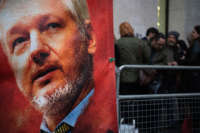


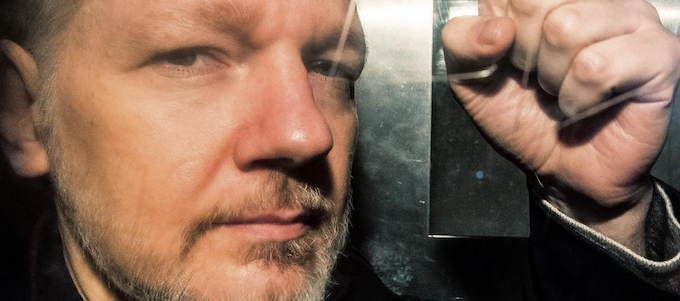 Julian Assange … still detained on remand at high-security Belmarsh prison. Image: RSF
Julian Assange … still detained on remand at high-security Belmarsh prison. Image: RSF


